Environment (English)
Farmers´ Protests in the Netherlands – what's behind them?
16.11.2022
Subtitle "Afrikaans" was produced by machine.Subtitle "አማርኛ" was produced by machine.Subtitle "العربية " was produced by machine.Subtitle "Ārāmāyâ" was produced by machine.Subtitle "azərbaycan dili " was produced by machine.Subtitle "беларуская мова " was produced by machine.Подзаглавието "България" е създадено от машина.সাবটাইটেল "বাংলা " মেশিন দ্বারা তৈরি করা হয়েছিল।Subtitle "བོད་ཡིག" was produced by machine.Subtitle "босански" was produced by machine.Subtitle "català" was produced by machine.Subtitle "Cebuano" was produced by machine.Subtitle "ગુજરાતી" was produced by machine.Subtitle "corsu" was produced by machine.Podtitul "Čeština" byl vytvořen automaticky.Subtitle "Cymraeg" was produced by machine.Subtitle "Dansk" was produced by machine.Untertitel "Deutsch" wurde maschinell erzeugt.Subtitle "Untertitel" was produced by machine.Ο υπότιτλος "Ελληνικά" δημιουργήθηκε αυτόματα.Subtitle "English" was produced by machine.Subtitle "Esperanto" was produced by machine.El subtítulo "Español" se generó automáticamente.Subtitle "Eesti" was produced by machine.Subtitle "euskara" was produced by machine.Subtitle "فارسی" was produced by machine.Subtitle "Suomi" was produced by machine.Le sous-titrage "Français" a été généré automatiquement.Subtitle "Frysk" was produced by machine.Subtitle "Gaeilge" was produced by machine.Subtitle "Gàidhlig" was produced by machine.Subtitle "Galego" was produced by machine.Subtitle "Schwizerdütsch" was produced by machine.Subtitle "هَوُسَ" was produced by machine.Subtitle "Ōlelo Hawaiʻi" was produced by machine.Subtitle "עברית" was produced by machine.Subtitle "हिन्दी" was produced by machine.Subtitle "Mẹo" was produced by machine.Podnaslov "Hrvatski" generiran je automatski.Subtitle "Kreyòl ayisyen " was produced by machine.Subtitle "Magyar" was produced by machine.Subtitle "Հայերեն" was produced by machine.Subtitle "Bahasa Indonesia " was produced by machine.Subtitle "Asụsụ Igbo " was produced by machine.Textun"Íslenska" var framkvæmt vélrænt.Sottotitoli "Italiano" sono stati generati automaticamente.字幕は"日本語" 自動的に生成されました。Subtitle "Basa Jawa" was produced by machine.Subtitle "ქართული" was produced by machine.Subtitle "қазақ тілі " was produced by machine.Subtitle "ភាសាខ្មែរ" was produced by machine.Subtitle "ಕನ್ನಡ" was produced by machine.Subtitle "한국어" was produced by machine.Subtitle "कोंकणी語" was produced by machine.Subtitle "کوردی" was produced by machine.Subtitle "Кыргызча" was produced by machine.Subtitle " lingua latina" was produced by machine.Subtitle "Lëtzebuergesch" was produced by machine.Subtitle "Lingala" was produced by machine.Subtitle "ພາສາ" was produced by machine.Subtitle "Lietuvių" was produced by machine.Subtitle "Latviešu" was produced by machine.Subtitle "fiteny malagasy" was produced by machine.Subtitle "te reo Māori" was produced by machine.Subtitle "македонски јазик" was produced by machine.Subtitle "malayāḷaṁ" was produced by machine.Subtitle "Монгол хэл" was produced by machine.Subtitle "मराठी" was produced by machine.Subtitle "Bahasa Malaysia" was produced by machine.Subtitle "Malti" was produced by machine.Subtitle "မြန်မာစာ " was produced by machine.Subtitle "नेपाली" was produced by machine.Ondertitels "Nederlands" machinaal geproduceerd.Subtitle "Norsk" was produced by machine.Subtitle "chiCheŵa" was produced by machine.Subtitle "ਪੰਜਾਬੀ" was produced by machine.Podtytuł "Polska" został utworzony przez maszynę.Subtitle "پښتو" was produced by machine.Legenda "Português" foi gerada automaticamente.Subtitle "Română" was produced by machine.Subtitle "Язык жестов (Русский)" was produced by machine.Субтитры "Pусский" были созданы машиной.Subtitle "Kinyarwanda" was produced by machine.Subtitle "सिन्धी" was produced by machine.Subtitle "Deutschschweizer Gebärdensprache" was produced by machine.Subtitle "සිංහල" was produced by machine.Subtitle "Slovensky" was produced by machine.Subtitle "Slovenski" was produced by machine.Subtitle "gagana fa'a Samoa" was produced by machine.Subtitle "chiShona" was produced by machine.Subtitle "Soomaaliga" was produced by machine.Titra "Shqip" u krijua automatikisht.Subtitle "србски" was produced by machine.Subtitle "Sesotho" was produced by machine.Subtitle "Basa Sunda" was produced by machine.Undertext "Svenska" är maskinell skapad.Subtitle "Kiswahili" was produced by machine.Subtitle "தமிழ்" was produced by machine.Subtitle "తెలుగు" was produced by machine.Subtitle "Тоҷикй" was produced by machine.Subtitle "ภาษาไทย" was produced by machine.ንኡስ ኣርእስቲ "ትግርኛ" ብማሽን እዩ ተፈሪዩ።Subtitle "Türkmençe" was produced by machine.Subtitle "Tagalog" ay nabuo sa pamamagitan ng makina.Altyazı "Türkçe" otomatik olarak oluşturuldu.Subtitle "татар теле" was produced by machine.Subtitle "Українська " was produced by machine.ذیلی عنوان "اردو" مشین کے ذریعہ تیار کیا گیا تھا۔Subtitle "Oʻzbek" was produced by machine.Phụ đề được tạo bởi máy.Subtitle "Serbšćina" was produced by machine.Subtitle "isiXhosa" was produced by machine.Subtitle "ייִדיש" was produced by machine.Subtitle "Yorùbá" was produced by machine.Subtitle "中文" was produced by machine.Subtitle "isiZulu" was produced by machine.
kla.TV accepts no liability for defective translation.kla.TV accepts no liability for defective translation.kla.TV accepts no liability for defective translation.kla.TV accepts no liability for defective translation.kla.TV accepts no liability for defective translation.kla.TV accepts no liability for defective translation.kla.TV не носи отговорност за некачествен превод.অপর্যাপ্ত অনুবাদের জন্য kla.TV কোন দায় বহন করে না।kla.TV accepts no liability for defective translation.kla.TV accepts no liability for defective translation.kla.TV accepts no liability for defective translation.kla.TV accepts no liability for defective translation.kla.TV accepts no liability for defective translation.kla.TV accepts no liability for defective translation.kla.TV nenese žádnou odpovědnost za chybné překlady.kla.TV accepts no liability for defective translation.kla.TV accepts no liability for defective translation.kla.TV übernimmt keine Haftung für mangelhafte Übersetzung.kla.TV accepts no liability for inadequate translationΗ kla.TV δεν φέρει καμία ευθύνη για ανεπαρκή μετάφραση.kla.TV accepts no liability for defective translation.kla.TV accepts no liability for defective translation.kla.TV no se hace responsable de traducciones incorrectas.kla.TV accepts no liability for defective translation.kla.TV accepts no liability for defective translation.kla.TV accepts no liability for defective translation.kla.TV accepts no liability for defective translation.kla.TV n'assume aucune responsabilité en cas de mauvaise traduction.kla.TV accepts no liability for defective translation.kla.TV accepts no liability for defective translation.kla.TV accepts no liability for defective translation.kla.TV accepts no liability for defective translation.kla.TV accepts no liability for defective translation.kla.TV accepts no liability for defective translation.kla.TV accepts no liability for defective translation.kla.TV accepts no liability for defective translation.kla.TV accepts no liability for defective translation.kla.TV accepts no liability for defective translation.kla.TV ne preuzima nikakvu odgovornost za neadekvatne prijevode.kla.TV accepts no liability for defective translation.kla.TV nem vállal felelősséget a hibás fordításértkla.TV accepts no liability for defective translation.kla.TV accepts no liability for defective translation.kla.TV accepts no liability for defective translation.kla.TV tekur enga ábyrgð á áræðanleika þýðingarinnarKla.TV non si assume alcuna responsabilità per traduzioni lacunose e/o errate.Kla.TV は、不適切な翻訳に対して一切の責任を負いません。kla.TV accepts no liability for defective translation.kla.TV accepts no liability for defective translation.kla.TV accepts no liability for defective translation.kla.TV accepts no liability for defective translation.kla.TV accepts no liability for defective translation.kla.TV accepts no liability for defective translation.kla.TV accepts no liability for defective translation.kla.TV accepts no liability for defective translation.kla.TV accepts no liability for defective translation.kla.TV accepts no liability for defective translation.kla.TV accepts no liability for defective translation.kla.TV accepts no liability for defective translation.kla.TV accepts no liability for defective translation.kla.TV accepts no liability for defective translation.kla.TV accepts no liability for defective translation.kla.TV accepts no liability for defective translation.kla.TV accepts no liability for defective translation.kla.TV accepts no liability for defective translation.kla.TV accepts no liability for defective translation.kla.TV accepts no liability for defective translation.kla.TV accepts no liability for defective translation.kla.TV accepts no liability for defective translation.kla.TV accepts no liability for defective translation.kla.TV accepts no liability for defective translation.kla.TV accepts no liability for defective translation.kla.TV aanvaardt geen aansprakelijkheid voor foutieve vertalingen.kla.TV accepts no liability for defective translation.kla.TV accepts no liability for defective translation.kla.TV accepts no liability for defective translation.kla.TV nie ponosi odpowiedzialności za wadliwe tłumaczenie.kla.TV accepts no liability for defective translation.kla.TV não se responsabiliza por traduções defeituosas.kla.TV accepts no liability for defective translation.kla.TV accepts no liability for defective translation.kla.TV не несет ответственности за некачественный перевод.kla.TV accepts no liability for defective translation.kla.TV accepts no liability for defective translation.kla.TV accepts no liability for defective translation.kla.TV accepts no liability for defective translation.kla.TV accepts no liability for defective translation.kla.TV accepts no liability for defective translation.kla.TV accepts no liability for defective translation.kla.TV accepts no liability for defective translation.kla.TV accepts no liability for defective translation.kla.TV nuk mban asnjë përgjegjësi për përkthime joadekuate.kla.TV accepts no liability for defective translation.kla.TV accepts no liability for defective translation.kla.TV accepts no liability for defective translation.Kla.TV tar inget ansvar för felaktiga översättningar.kla.TV accepts no liability for defective translation.kla.TV accepts no liability for defective translation.kla.TV accepts no liability for defective translation.kla.TV accepts no liability for defective translation.kla.TV accepts no liability for defective translation.kla.TV ንዝኾነ ጉድለት ትርጉም ዝኾነ ይኹን ሓላፍነት ኣይቅበልን እዩ።kla.TV accepts no liability for defective translation.kla. Walang pananagutan ang TV sa mga depektibong pagsasalin.kla.TV hatalı çeviriler için hiçbir sorumluluk kabul etmez.kla.TV accepts no liability for defective translation.kla.TV accepts no liability for defective translation.kla.TV عیب دار ترجمہ کے لیے کوئی ذمہ داری قبول نہیں کرتا ہے۔kla.TV accepts no liability for defective translation.Kla. TV không chịu trách nhiệm về bản dịch không đầy đủ.kla.TV accepts no liability for defective translation.kla.TV accepts no liability for defective translation.kla.TV accepts no liability for defective translation.kla.TV accepts no liability for defective translation.kla.TV accepts no liability for defective translation.kla.TV accepts no liability for defective translation.
This is a modal window.
The media could not be loaded, either because the server or network failed or because the format is not supported.
Farmers´ Protests in the Netherlands – what's behind them?
16.11.2022
www.kla.tv/24161
Christianne van der Wal, Minister for Nature and Nitrogen Policy, presented the Dutch Nitrogen Plan in early June. This envisages a reduction in nitrogen emissions of 12 to 95 percent. This plan has caused great resentment among farmers in the Netherlands. But isn’t there much more to these supposed environmental protection measures than meets the eye? And why are these measures being pushed forward at a time when food shortages are looming?
[continue reading]
Farmers´ Protests in the Netherlands – what's behind them?
Download broadcast and attachments in the wanted quality: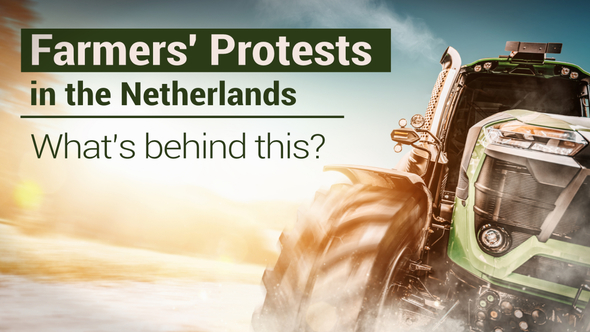
Hashtags:
Useage rights:
Standard-Kla.TV-Licence
Trending on Kla.TV


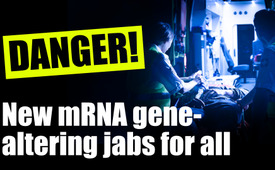
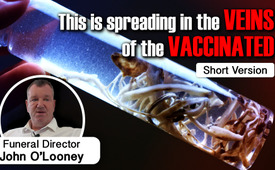
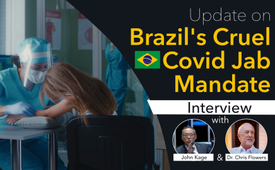
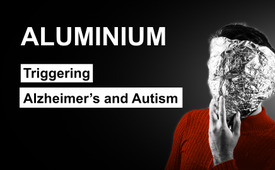
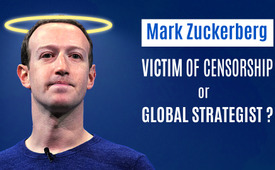

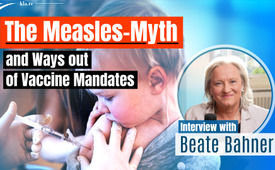
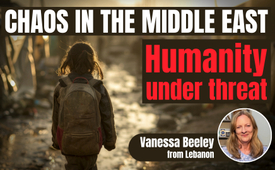

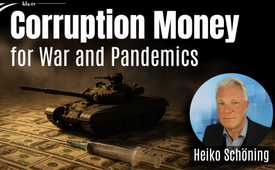
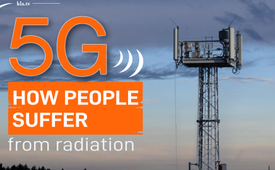

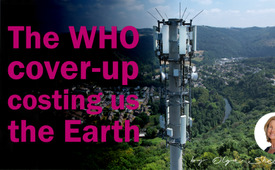
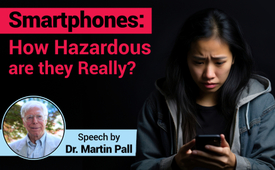
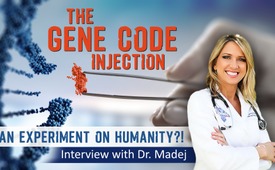




16.11.2022 | www.kla.tv/24161
Public media have paid little attention to the ongoing protest actions by Dutch farmers since early July. These were triggered by the Nitrogen Plan, which was introduced by Christianne van der Wal, Dutch Minister for Nature and Nitrogen Policy, in early June. The plan provides for a reduction of between 12 and 95 percent in nitrogen emissions depending on the respective province, which is said to halve ammonia pollution by 2030. In practice, this would mean banning the use of nitrogenous fertilizers and reducing the number of cattle a farmer is allowed to keep by 30 percent. This is because the urea excreted by the livestock which is released into the environment in the form of manure, is converted into ammonia. According to government estimates, the measures would force approximately 30 percent of the currently about 53,000 farms to close down, mainly smaller farms and family farms. This plan has caused great resentment among farmers in the Netherlands. They feel betrayed because they abided by all the prescribed rules and made sustainable investments. They are missing an agriculture perspective. Ever since the government’s move, they have been drawing attention to themselves with various protest actions: They have repeatedly blocked roads as well as entrances to supermarkets and have assembled in front of government buildings to make their displeasure known. However, could it be that there is a lot more behind these alleged environmental protection measures? And why is it that these measures are being pushed in times of looming food shortages due to the Ukraine conflict? Should not a surplus of food be the goal of global policies? The Netherlands are not the only country in which farms are facing ruin. The investigative portal “OffGuardian” reports for instance that in both the UK and the US, programs have been set up to pay farmers off for quitting their jobs and making their land disposable to the state. In the US, more than 35.2 million hectares of farmland have already been sold to investors. Under the pretext of bird flu, millions of chickens have been exterminated in the USA, the world’s largest exporter of chickens and eggs, but also in France, Canada and Great Britain. In addition, the price of gas and oil has been rising for some time. Along with the anti-Russian sanctions, which will almost inevitably cause an outage of gas and oil, this development puts pressure on farmers, who already work at minimum subsistence levels. Often, they can no longer afford the increased fuel and energy costs. Dairies are also sounding the alarm. Milk cannot be processed without gas. Cheese, milk and butter might be missing on supermarket shelves in the future. All things considered, a food supply catastrophe in the West is looming ahead. Is this a coincidence or perhaps brought about on purpose? On July 28th 2020, the Rockefeller Foundation released the report “Reset the Table: Meeting the Moment to Transform the US Food System”. The report speaks of very serious impacts on the food supply that did not even exist at the time. The Rockefeller Foundation regarded the total transformation of the entire food system and its associated supply chains as solution to the crisis. Just one month earlier, the World Economic Forum (WEF) announced the “Great Reset” entailing a similar vision. For this, the WEF, together with the UN, published a joint report entitled “Transforming Food Systems: Pathways for country-led innovations”. It addresses digitization and centralization of food production as a major key. Craig Rucker, executive director of the Committee For A Constructive Tomorrow (CFACT) told the Epoch Times that the UN, the WEF and large corporations, such as BlackRock and Vanguard, are working together in order to take control of the world-wide food production. Indeed, this development is currently visible in Ukraine, where the agribusiness and biotech giants Monsanto, DuPont and Cargill are acquiring huge amounts of arable land. Together, these US companies have already purchased approximately 17 million hectares of farmland in eastern and southern Ukraine. In the case of Monsanto and DuPont, BlackRock and Vanguard are the main shareholders. But let us get back to the farmers’ protests in the Netherlands: Seen from this perspective, do the government’s measures really serve to “save nature” and “fight climate change”? Or are we spectators of the practical implementation of the WEF’s goals implying a centralization of food production? This should be narrowly observed further on.
from sak./faj.
https://www.youtube.com/watch?v=_ZE6f_ccQsc
https://www.schweizerbauer.ch/politik-wirtschaft/international/rechtsextreme-und-die-bauernproteste/
https://ansage.org/bauernkriege-2-0/
https://www.bafu.admin.ch/bafu/de/home/themen/luft/fachinformationen/luftschadstoffquellen/landwirtschaft-als-luftschadstoffquelle.html
https://uncutnews.ch/experten-weltwirtschaftsforum-steckt-hinter-globalem-krieg-gegen-die-bauern/
Collapse of food production: https://off-guardian.org/2022/06/29/theyre-coming-for-your-backyard-chickens/
https://off-guardian.org/2022/04/25/5-signs-they-are-creating-a-food-crisis/
https://uncutnews.ch/das-neue-kontrollierte-lebensmittelsystem-ist-jetzt-in-kraft-und-sie-werden-vor-nichts-halt-machen-um-ihre-kontrolle-zu-erweitern/